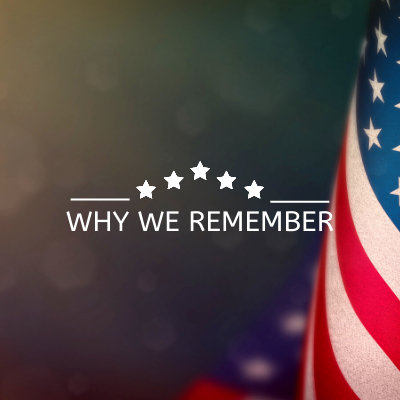
John F. Kennedy once stated, “The cost of freedom is always high, but Americans have always paid it.” This statement is true for the United States from the “shot heard ‘round the world” near Old North Bridge at Concord, Massachusetts, the modern weapons of war that threaten soldiers serving in foreign lands today. As Abraham Lincoln addressed a warring nation from the blood-soaked fields of Gettysburg, he declared the resolve, “…from these honored dead we take increased devotion to that cause for which they gave the last full measure of devotion, that we here highly resolve that these dead shall not have died in vain, that this nation under God, …and that government of the people by the people and for the people shall not perish from the earth.” Woe unto the ingrate who shows a lack of appreciation toward a soldier’s ultimate sacrifice; woe unto the ingrate who cowers behind the banner of freedom and denigrates the memories of all whose blood serves as the ink in liberty’s ledger. Freedom is neither free nor cheap, and the price is paid through the selfless sacrifice of the dead and the lingering mourning of their families. Every grave marker of every soldier represents more than some pawn sacrificed on a global chessboard; these were men and women, brothers and sisters, sons and daughters, mothers and fathers, husbands and wives. It is indeed fitting that this nation set aside a day to remember those who gave their lives for others, and they should be remembered as more than faceless mannequins in military uniforms. Remember them for what they knew they were leaving behind. Remember them for the trials they knew they would face. Remember them for ultimate sacrifices that they made.
What did they leave behind? They left weeping and fearful wives and mothers, proud and anxious fathers, admiring siblings, childhood friends and peers. They left babies and children. They donned a cloak of confidence to comfort those to whom they bade farewell, and all the while they faced the ever-present question, “Will I ever see them again?” Remember what they left behind
What did they know they would face? They knew that the physical conditions would be rigorous. They would be stripped of all pride and would learn their true weaknesses. War was possible for some and inevitable for others, and with it came the threats of fear, anguish, and loss. They knew, yet they went. Remember them for what they knew they would face.
What did they sacrifice? They sacrificed a homecoming with their families. They sacrificed their plans, their hopes, and their dreams. They sacrificed the opportunity to grow old while enjoying the very freedoms that they fought to defend. They sacrificed their lives.
As remarkable and admirable as the sacrifice of a soldier is, no sacrifice in the history of mankind can rival the selflessness demonstrated at Calvary. “Greater love hath no man than this, that a man lay down his life for his friends” (John 14:15). Remember what Jesus was willing to leave behind: “Who, existing in the form of God, counted not the being on an equality with God a thing to be grasped” (Philippians 2:6 – ASV). Jesus left the comfort, position, and glory of heaven, and He came here to prepare a path whereby mankind could go there (John 14:6): remember Him for what He left behind. Remember also what Jesus knew He would face. He knew the weakness of men, yet He took upon Himself the form of a man: “…but emptied Himself, taking the form of a servant, being made in the likeness of men” (Philippians 2:7). Remember the ultimate sacrifice that Jesus was willing to make: “And being found in fashion as a man, He humbled Himself, becoming obedient unto death, yea, the death of the cross” (Philippians 2:8). As the time of the cross drew near, He repeatedly prepared His apostles for what He would face: “Ye know that after two days is the feast of the Passover, and the Son of man is betrayed to be crucified” (Matthew 26:2). Jesus knew that He would suffer before He ever entered human form (Isaiah 53), yet He came willingly. Remember Him for His sacrifice.
Memorial Day is an opportunity to remember those who gave the ultimate sacrifice for their nation. They deserve to be remembered. While remembering these soldiers, never forget the One Who paid the ultimate sacrifice to establish His Holy Nation (1 Peter 2:9). While Sunday is the day wherein Christians partake of the Lord’s memorial (Acts 20:7; 1 Corinthians 11:24-25), every day is another opportunity to remember what He left, what He knew He would face, and what He sacrificed.
Remember the soldiers, but most of all, remember the Savior.
-Scott Cain
